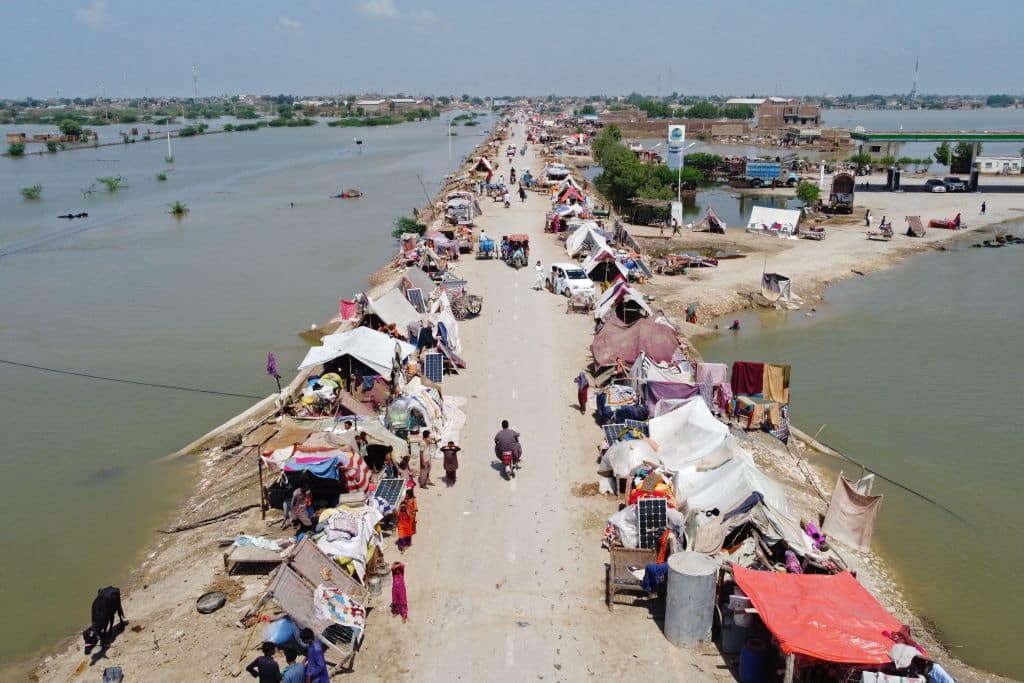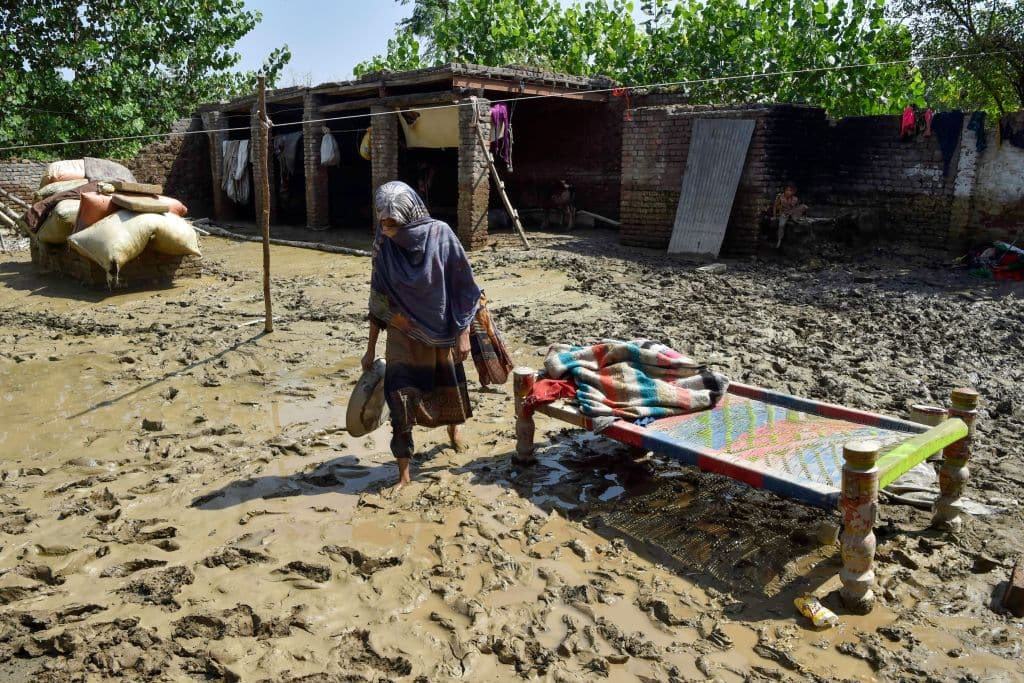Health Officials Warn of Major Disease Outbreaks as Severe Flooding Continues in Pakistan

 Why you can trust us
Why you can trust us
Founded in 2005 as an Ohio-based environmental newspaper, EcoWatch is a digital platform dedicated to publishing quality, science-based content on environmental issues, causes, and solutions.
As the unprecedented flooding that has destroyed whole villages and affected more than 33 million people continues in Pakistan, the World Health Organization (WHO) warned of an increased threat of the spread of waterborne and vector-borne diseases like diarrhea, malaria and dengue fever, the United Nations (UN) said in a press release.
According to Director-General of WHO Tedros Adhanom Ghebreyesus, the catastrophe has been classified as the highest level of emergency, grade 3. This means all three levels of the UN agency participate in the response.
“Floods in Pakistan, drought and famine in the Greater Horn of Africa, and more frequent and intense cyclones in the Pacific and Caribbean all point to the urgent need for action against the existential threat of climate change,” Ghebreyesus said, according to the press release.
Almost 1,200 people have died due to floods caused by months of monsoon rains, reported The Guardian. The flooding has caused damage to more than 880 health facilities throughout Pakistan, leaving millions without medical treatment.
More than 161,000 of those who have been displaced due to the floods are living in relief camps, the UN said.
“Families are now living on the banks of overflowed canals and rivers in ramshackle huts made of bamboo and plastic. They have even been drinking flood water because there is no other option – a recipe for large-scale disease outbreaks. We are doing all we can to reach them,” said Director of WaterAid Pakistan Arif Jabbar Khan, as The Guardian reported.
Waterborne diseases are being seen across Pakistan, said authorities, reported PBS NewsHour.
“Initially we received injured people, but now diarrhea is common,” said Farhad Khan, a physician running a medical camp in Charsadda, as PBS NewsHour reported.
About 650,000 women who are in areas affected by the flooding need maternal health care, the UN Population Fund said, according to PBS NewsHour.
“Up to 73,000 women expected to deliver next month will need skilled birth attendants, newborn care, and support,” the UN Population Fund said in a statement, as reported by PBS NewsHour.

Pakistan is one of only two countries in the world where polio remains endemic and monitoring for it and other transmissible diseases is being increased.
Pakistan’s government has declared a state of emergency and Ghebreyesus has released $10 million in aid from WHO, the UN press release said. The UN has also launched an international appeal for $160 million to help the flood-ravaged country.
An assessment from WHO and partners found that the devastation in Pakistan is greater than in previous floods, including those in 2010.
The floods are predicted to get worse, and government authorities are providing sessions on communicable diseases. WHO and Pakistan’s health ministry are ramping up monitoring for cholera, acute watery diarrhea and other infectious diseases. WHO is also supplying medical supplies and medicines to operational health facilities.
“Our key priorities now are to ensure rapid access to essential health services to the flood-affected population[,] strengthen and expand disease surveillance, outbreak prevention and control, and ensure robust health cluster coordination,” said representative of WHO in Pakistan Dr. Palitha Mahipala, the press release said.
Subscribe to get exclusive updates in our daily newsletter!
By signing up, you agree to the Terms of Use and Privacy Policy & to receive electronic communications from EcoWatch Media Group, which may include marketing promotions, advertisements and sponsored content.

 233k
233k  41k
41k  Subscribe
Subscribe 




